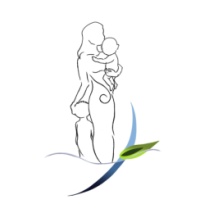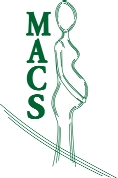
The Centre for Mother, Infant, and Child Research
at the Sunnybrook Research Institute
Fully affiliated with the University of Toronto

The Centre for Mother, Infant, and Child Research
at the Sunnybrook Research Institute
Fully affiliated with the University of Toronto
 ISRCTN72654148 |
Multiple Courses of Antenatal Corticosteroids for Preterm Birth Study
|
Primary Research Question: For women at 25-32 weeks gestational age, fourteen or more days following a single course of antenatal corticosteroids (ACS), who remain at increased risk of preterm birth, compared to placebo are multiple courses of ACS every 14 days, until 33 weeks, effective in reducing the risk of perinatal or neonatal mortality or significant neonatal morbidity?
Background: For women at increased risk of preterm birth, the benefits of a single course of ACS are well established. These include a reduction in neonatal respiratory distress syndrome (RDS) intraventricular haemorrhage (IVH), neonatal mortality, and the need for surfactant therapy. These benefits have been demonstrated to begin 24 hours post treatment and continue up to 7 days. Extrapolating these benefits, many physicians have suggested that weekly courses be given to women who remain at increased risk of preterm birth. In some centres, the practice of giving multiple courses of ACS has become routine. Although animal studies have found that multiple courses of antenatal corticosteroids may result in decreased infant growth in the uterus, recently completed well-designed human studies have not found any effect of multiple courses of antenatal corticosteroids on the growth of the infant. These recent human studies have also suggested that multiple courses of antenatal corticosteroids may have some benefits for the infant but the studies were too small to know if the benefits are real. We therefore need a study like this one to clarify whether multiple courses of antenatal corticosteroids are truly beneficial.
Research Design: The study is a multicentre, double masked RCT. Randomisation is stratified by gestational age and participating centre. Hospitals in Canada and other countries are invited to participate if they are confident of obtaining a follow-up rate of >80% for neurodevelopmental and behavioural assessments at 2 years of age.
Selection Criteria: Inclusion criteria: Women at 25-32 weeks gestation, 14-21 days following a single course of ACS, who remain at increased risk of preterm birth, are eligible to participate. Exclusion criteria: Women requiring chronic corticosteroid treatment; women with contraindications to corticosteroids; women with clinical evidence of chorioamnionitis; women who carry a fetus with a known lethal congenital anomaly; first course of ACS given prior to 23 weeks, and previous participation in MACS.
Randomisation: Eligible women will be randomly allocated, using a centrally controlled, computerised telephone randomisation service, with stratification for gestational age and participating centre, to receive multiple courses of either ACS or placebo, until 33 weeks.
Outcomes: The primary outcome is perinatal or neonatal mortality (until 28 days of age or hospital discharge, which ever is later), or significant neonatal morbidity (one or more of the following: RDS, bronchopulmonary dysplasia, grade 3 or 4 IVH, periventricular leukomalacia, or necrotizing enterocolitis). The secondary outcome is death or neurological impairment at 18-24 months corrected age defined as a score £ 70 on the Bayley Scales of Infant Development II (Mental Developmental Index) and/or cerebral palsy. Additional outcomes include neonatal infection, retinopathy of prematurity, length of stay in neonatal intensive care, birth weight, birth head circumference, birth length, patent ductus arteriosus; weight, head circumference, height at 18-24 months corrected age; maternal clinical chorioamnionitis, maternal infection and maternal postpartum depression, Maternal side effects (headache, moonface, acne, excess hair growth, swelling, striae, sleeping difficulty, muscle weakness, increased appetite, bruising, memory problems, mood swings).
Sample Size: In total, 1900 women (950/group) will be required.
Trial Management: The first patient was randomised in April 2001 and recruitment will be completed by December 2004. Babies will be followed until approximately 2 years of age (adjusted for gestational age at birth). The study is coordinated at the Maternal, Infant and Reproductive Health Research Unit (MIRU) in Toronto, Canada.
Significance: In Canada today, approximately 7% of infants are born preterm. Approximately half of these infants are exposed to multiple course of ACS. This randomised controlled trial will help to determine the effectiveness of this important antenatal treatment.
Principal Investigator: Kellie Murphy
Steering Committee: Mary
Hannah, Susan Ross, Arne Ohlsson, Ed Kelly, Steve
Matthews,
Saroj
Saigal, Shoo Lee, Andrew Willan,
Amiram Gafni, Sheila Hewson,
Marie-France
Delisle,
Patricia Guselle, Fariba Aghajafari, Kofi Amankwah
Active & Interested Centres in: Canada, USA,
Israel, Europe & South America
Funded by: Canadian Institutes of
Health Research (CIHR)
For more
information: www.utoronto.ca/cmicr/macs or macs@sw.ca